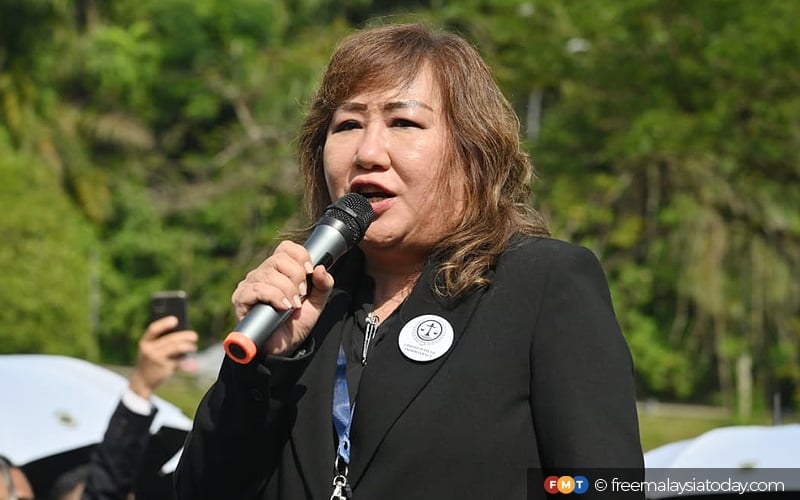
PETALING JAYA: The High Court judge who presided over Ahmad Zahid Hamidi’s corruption trial had little choice in granting the deputy prime minister a discharge not amounting to an acquittal (DNAA), the Malaysian Bar said.
Its president, Karen Cheah, said while the prosecution had applied for a DNAA, Zahid’s lawyer pushed for “an outright acquittal”.
“Let us be clear and make no mistake about it. The learned High Court judge had no alternative but to decide on either a DNAA or an acquittal,” she said, referring to Justice Collin Lawrence Sequerah.
“It therefore rings hollow for the Attorney-General’s Chambers to wholly attribute the withdrawal of the case to the High Court and use that as a reason in its statement instead of providing a detailed explanation.”
On Tuesday, the AGC defended its highly criticised decision to apply for a DNAA, saying the grounds it presented before Sequerah were deemed “cogent”.
Cheah, however, said the statement issued by the AGC was completely devoid of proper justifications as regards to why it had requested for a DNAA.
On Monday, Zahid was granted a DNAA on all 47 of his corruption, criminal breach of trust (CBT) and money laundering charges.
Zahid, who was previously ordered to enter his defence on all charges, was accused of embezzling millions of ringgit from his foundation, Yayasan Akalbudi, and accepting bribes for various projects during his tenure as the home minister between 2013 and 2018.
Cheah went on to say the AGC’s decision to apply for the DNAA at “such a late juncture” had tarnished its own reputation and credibility as the prosecuting party, and that of the Malaysian Anti-Corruption Commission as the investigating body.
She said Sequerah had lamented that should the prosecution decide in future not to proceed with further charges then “much precious judicial time would have been wasted and a great amount of taxpayers’ money would also have been wasted”.
In this matter, the attorney-general must take responsibility and be accountable, she said.
Cheah also said Zahid’s case has made it increasingly urgent for the proposed separation of the attorney-general’s office and that of the public prosecutor’s office to take place by 2024.
“This is so our criminal justice system is strengthened to remove prospects and/or the appearance of bias in the way politicians are being charged, and in the way charges against them are being withdrawn,” she said. - FMT



No comments:
Post a Comment
Note: Only a member of this blog may post a comment.